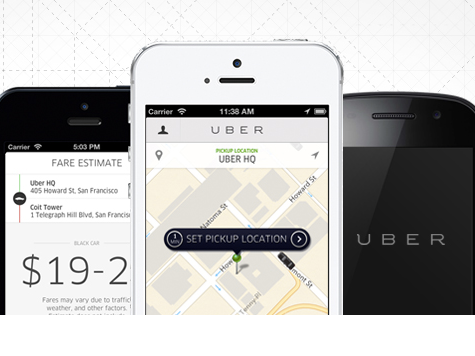AUSTIN, Texas — The San Antonio City Council is considering regulations that may force ride-sharing company Uber to cease its operations in the city, according to a letter Uber emailed to the City Council on Sunday.
According to a report by the San Antonio Express-News, the City Council is considering adopting additional regulations on transportation network companies, or TNCs, like Uber and its competitor Lyft. In recent years, TNCs have experienced massive growth in many metropolitan areas of the United States, but they have also faced stiff opposition from traditional taxi, limo, and shuttle services, who have fought back by staging protests and lobbying local government officials to pass regulations that make it tougher for TNCs to compete, as Breitbart Texas reported.
The R Street Institute, a free market think tank, recently published a study on how America’s fifty largest cities are approaching the challenge of regulating TNCs. As Breitbart Texas reported, San Antonio got the lowest score out of any city in Texas, a D-, and these new regulations are poised to drive that score even lower. “Make no mistake. This is not an ordinance to allow ride-sharing. It’s an ordinance to prevent ride-sharing,” Josiah Neeley, R Street’s Texas Director, told Breitbart Texas. “The regulation throws up so many anti-ride-sharing roadblocks, from millions in insurance to written exams, that it will effectively prohibit ride-sharing companies from operating in San Antonio.”
The City Council is scheduled to discuss the proposed regulations later this week, to be enacted through revisions to Chapter 33 of the City Code. Among the new regulations being considered are requiring TNCs to comply with the same Vehicles For Hire provisions of the Americans with Disabilities Act, including providing a referral to a wheelchair accessible vehicle if one cannot be provided, and additional requirements for insurance, driver testing, and vehicle inspections. Additionally, they are also considering a variety of new, additional permitting fees for TNCs, including per vehicle or per driver fees, fees calculated as a percentage of revenue, and per trip fees.
These proposed fees are unlikely to be a significant source of income for the city. According to the staff projections, if enacted, permit fees would bring in an estimated $52,500 to $87,500 for the remainder of the current fiscal year, but the San Antonio Police Department would have to hire an additional transportation inspector to process the permits and validate compliance, at an estimated cost of $42,968 for that same time period. The estimated cost of the additional inspector for the next full fiscal year, FY2016, is $46,437.
As expected, Uber objected to the regulations that the City Council is considering. In a letter emailed to the City Council, Leandre Johns, a Dallas-based Uber general manager, said that the proposed ordinance had “numerous flaws” and “creates extensive, unnecessary requirements for part-time drivers, creates barriers to entry for drivers and significantly deviates from the standards set by every other Texas municipality that has enacted TNC regulations.” Johns also wrote that if enacted, this ordinance “would force TNCs to abandon service in San Antonio.”
In the letter, the full text of which is embedded at the end of this article, Johns details multiple ways that their business model is “fundamentally different” from that of traditional taxi companies and seeks to provide reassurance that Uber’s existing safety requirements are sufficient. Comparisons are made to less restrictive rules in place in Austin, Dallas, and Houston, and Johns takes special exception to a proposed insurance requirement for TNCs that would be far in excess of what required for taxis.
Johns also pointed out that Uber had “participated in good faith on similar ordinances across Texas,” including San Antonio, and had been able to reach “viable solutions” in other cities, leaving San Antonio “as the only major Texas city that does not welcome the benefits of ridesharing.” Johns concludes the letter by arguing that the proposed regulations would not increase public safety and would only serve as an unfair protective advantage for the taxi industry.
The San Antonio City Council is scheduled to discuss the proposed revisions to Chapter 33 of the City Code at 9:00 am Central Time on Thursday, December 11, on the City Council A Session Agenda.
Uber Letter to San Antonio City Council
Photo credit: Uber via Facebook.
Follow Sarah Rumpf on Twitter @rumpfshaker

COMMENTS
Please let us know if you're having issues with commenting.